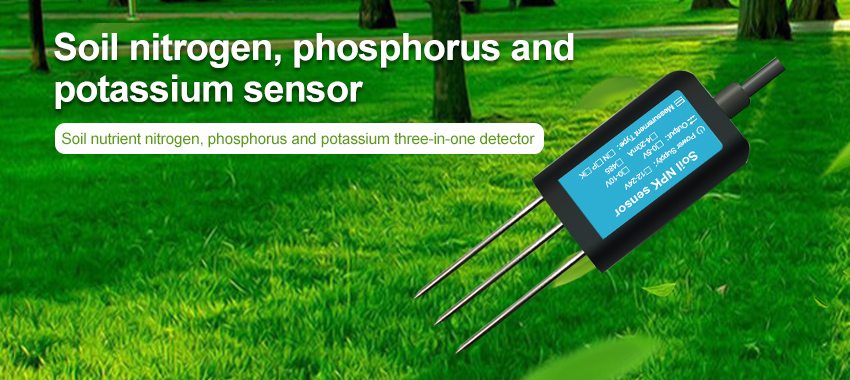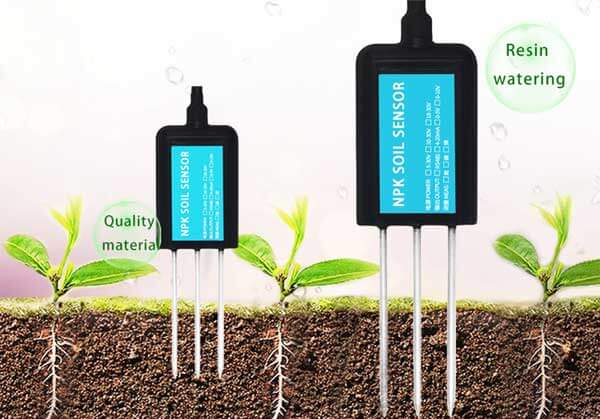Precision farming, also known as precision agriculture, is a modern farming approach that utilizes advanced technologies to optimize crop production while minimizing resource inputs. One of the key elements of precision farming is soil sensing technology, which enables farmers to gather accurate and real-time data about soil conditions. This article explores the concept of precision farming, the role of soil sensing technology in enhancing crop yield and sustainability, and the benefits it brings to farmers and the environment.

Understanding Precision Farming:
Precision farming involves the use of various technologies, such as GPS, remote sensing, and data analytics, to collect and analyze information about crop and soil conditions. By integrating these technologies, farmers can make informed decisions and apply inputs precisely where and when they are needed. This approach replaces traditional blanket applications of fertilizers, pesticides, and water, resulting in optimized resource utilization and improved crop quality.
The Role of Soil Sensing Technology:
Soil sensing technology is a critical component of precision farming. It allows farmers to monitor and analyze soil properties accurately and in real-time. Through the use of specialized sensors and monitoring systems, farmers can measure parameters such as moisture content, nutrient levels, pH balance, temperature, and soil compaction. This data provides valuable insights into soil health and fertility, enabling farmers to make data-driven decisions and implement targeted agricultural practices.
Optimizing Nutrient Management:
One of the significant benefits of soil sensing technology is its ability to optimize nutrient management. Traditional farming practices often involve uniform application of fertilizers throughout the field, leading to over-application or under-application in certain areas. Soil sensing technology provides farmers with detailed information about existing nutrient levels in different parts of the field. By analyzing this data, farmers can precisely tailor their fertilizer application, ensuring that each area receives the specific nutrients it requires. This improves crop nutrition, minimizes nutrient wastage, and reduces the risk of environmental pollution.
Efficient Water Usage:
Water scarcity is a growing concern in agriculture, making efficient water management crucial for sustainable farming. Soil sensing technology plays a vital role in optimizing water usage. By monitoring soil moisture levels, farmers can determine when and how much water to apply to their crops. This prevents over-irrigation, which not only wastes water but also leaches nutrients from the soil. By providing real-time data on soil moisture, sensors help farmers make informed decisions about irrigation scheduling, leading to water conservation, reduced costs, and improved crop health.
Precision Pest and Disease Management:
Pests and diseases can have a devastating impact on crop health and yield. With soil sensing technology, farmers can detect early signs of pest infestation or disease development. By monitoring soil conditions and analyzing data, sensors can identify conditions favorable for the spread of pests and diseases. This allows farmers to take proactive measures, such as adjusting irrigation or applying targeted pesticides, to prevent or mitigate the damage. By intervening at the right time and in the right place, farmers can minimize the use of chemical inputs and adopt more sustainable pest management strategies.

Enhancing Sustainability:
Precision farming, enabled by soil sensing technology, promotes long-term sustainability in agriculture. By optimizing resource utilization, such as fertilizers, water, and pesticides, precision farming reduces waste and minimizes environmental impact. Through precise applications, farmers can significantly reduce nutrient runoff, soil erosion, and groundwater contamination. Moreover, soil sensing technology provides valuable insights into soil health indicators, such as organic matter content and microbial activity. This information helps farmers implement soil conservation practices, crop rotation, and cover cropping, improving soil fertility and long-term sustainability.
Data-Driven Decision Making:
Soil sensing technology generates a vast amount of data that can be analyzed and interpreted to make data-driven decisions. Advanced analytics and machine learning algorithms enable farmers to uncover patterns, identify trends, and gain valuable insights from the collected data. For example, by analyzing historical soil moisture data, farmers can develop predictive models to optimize irrigation scheduling. This enables them to make proactive decisions and adjust farming practices accordingly, ultimately leading to higher crop yields and improved farm efficiency.
Conclusion:
Precision farming, with soil sensing technology at its core, is revolutionizing agriculture by enabling farmers to make precise, dat